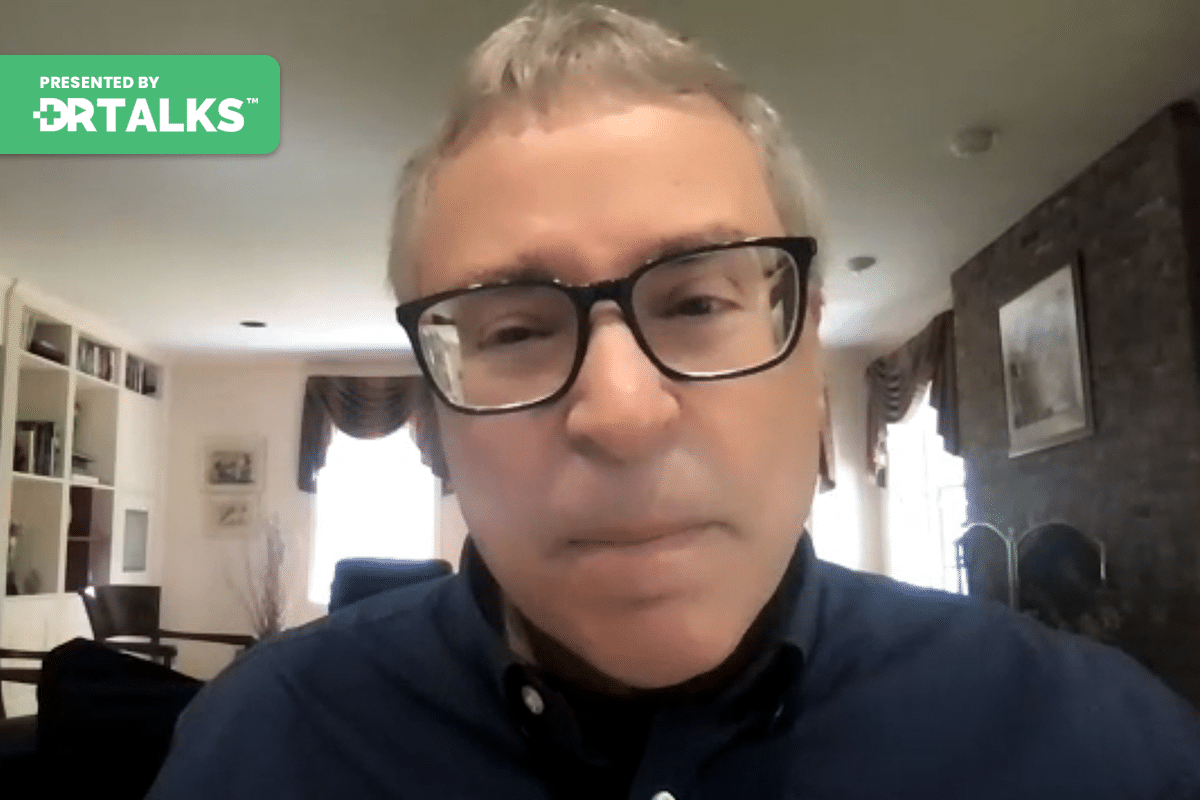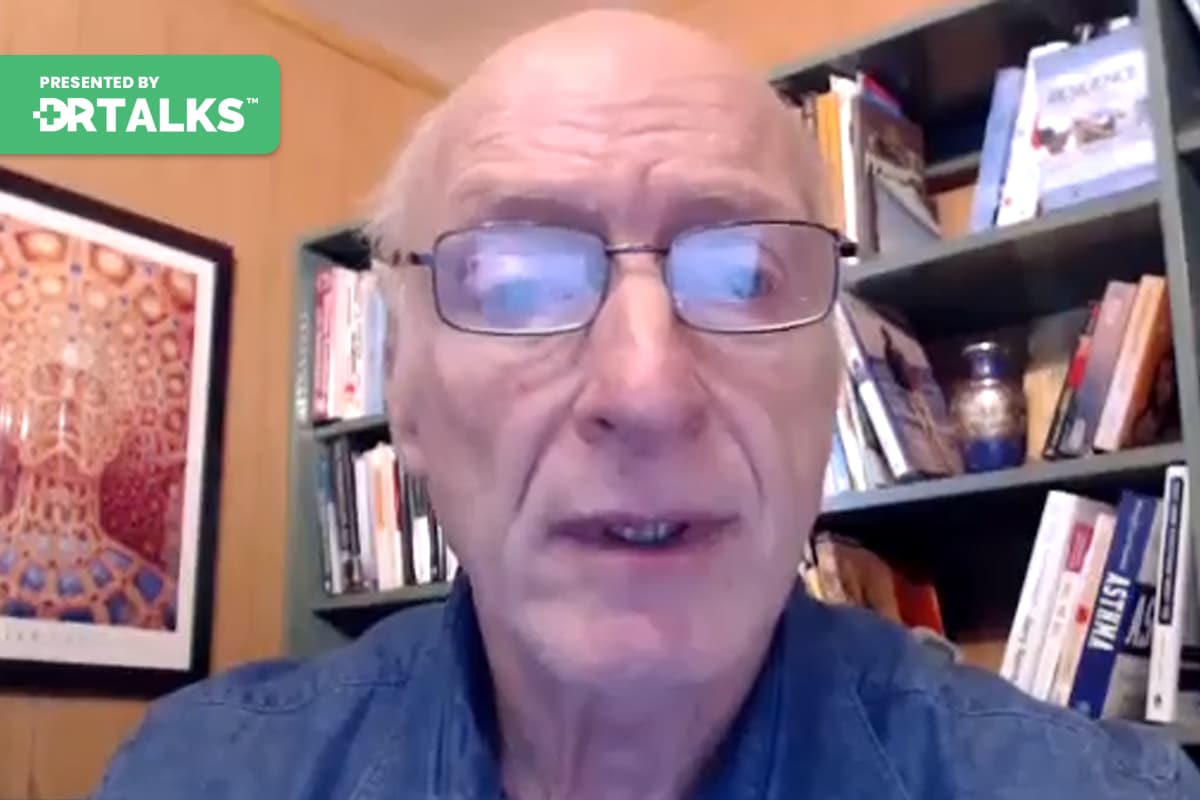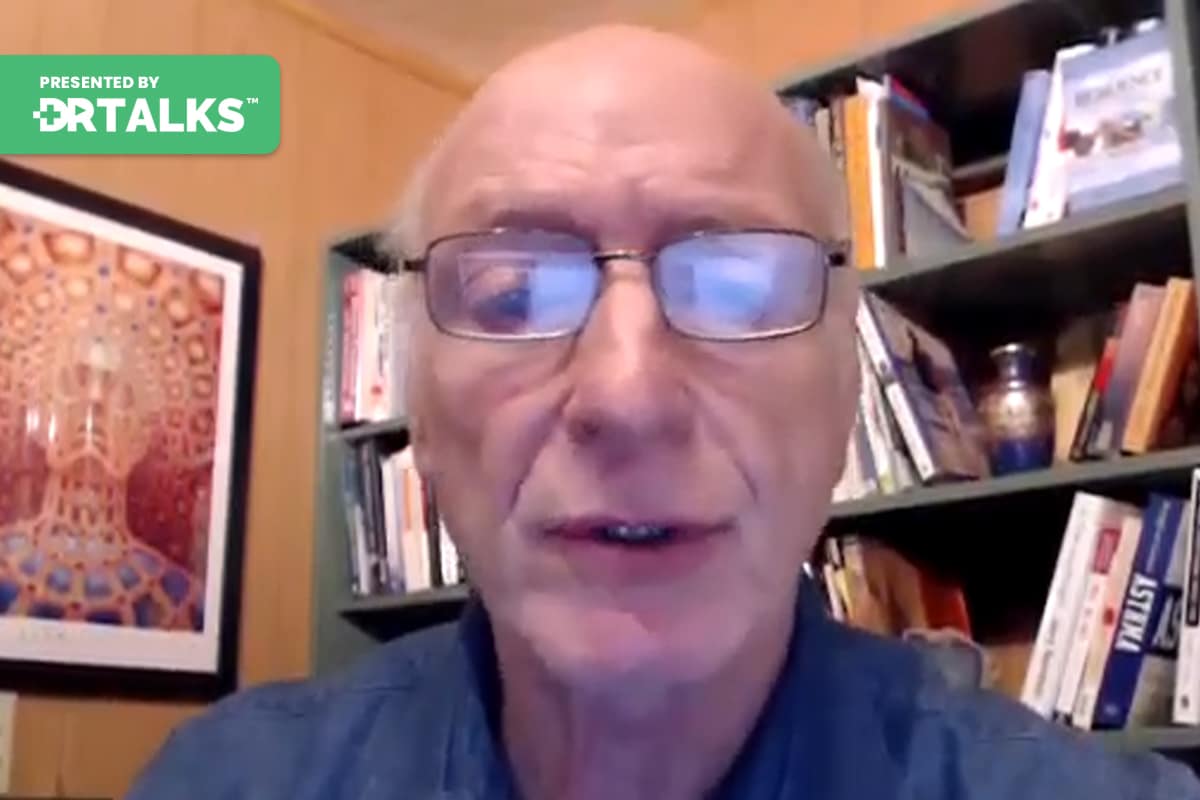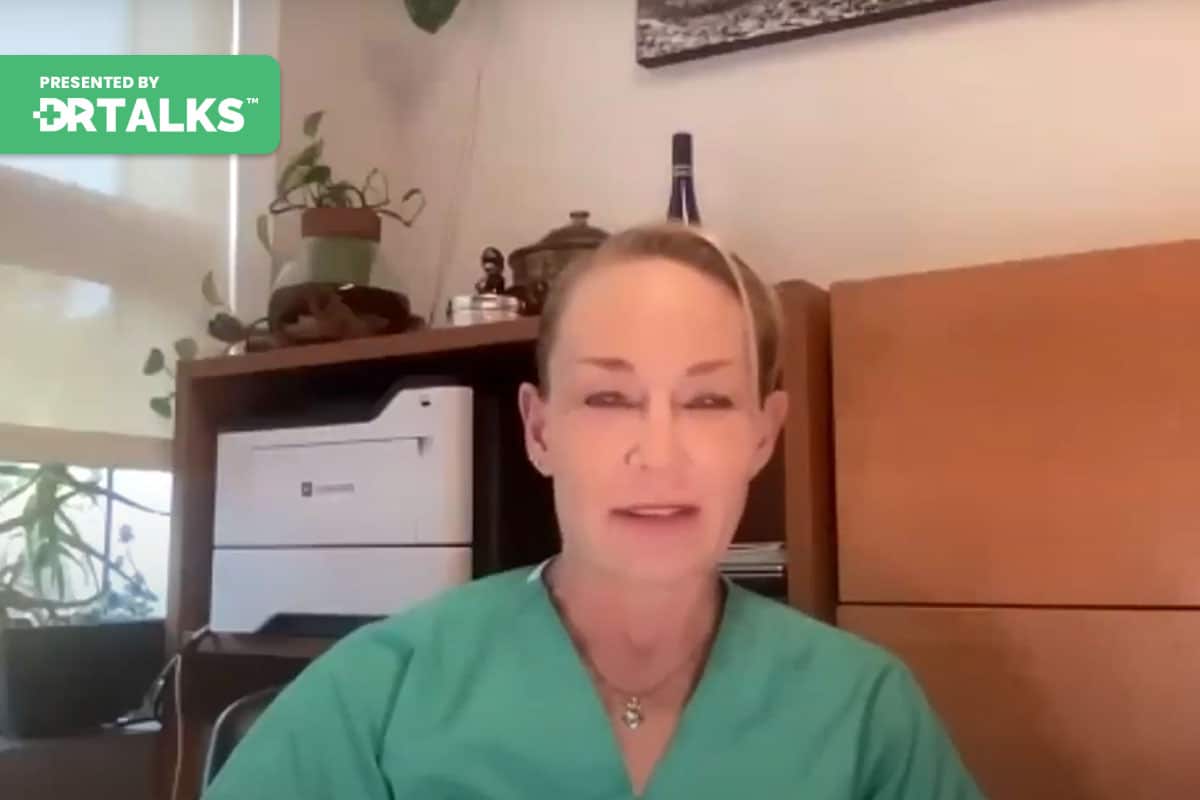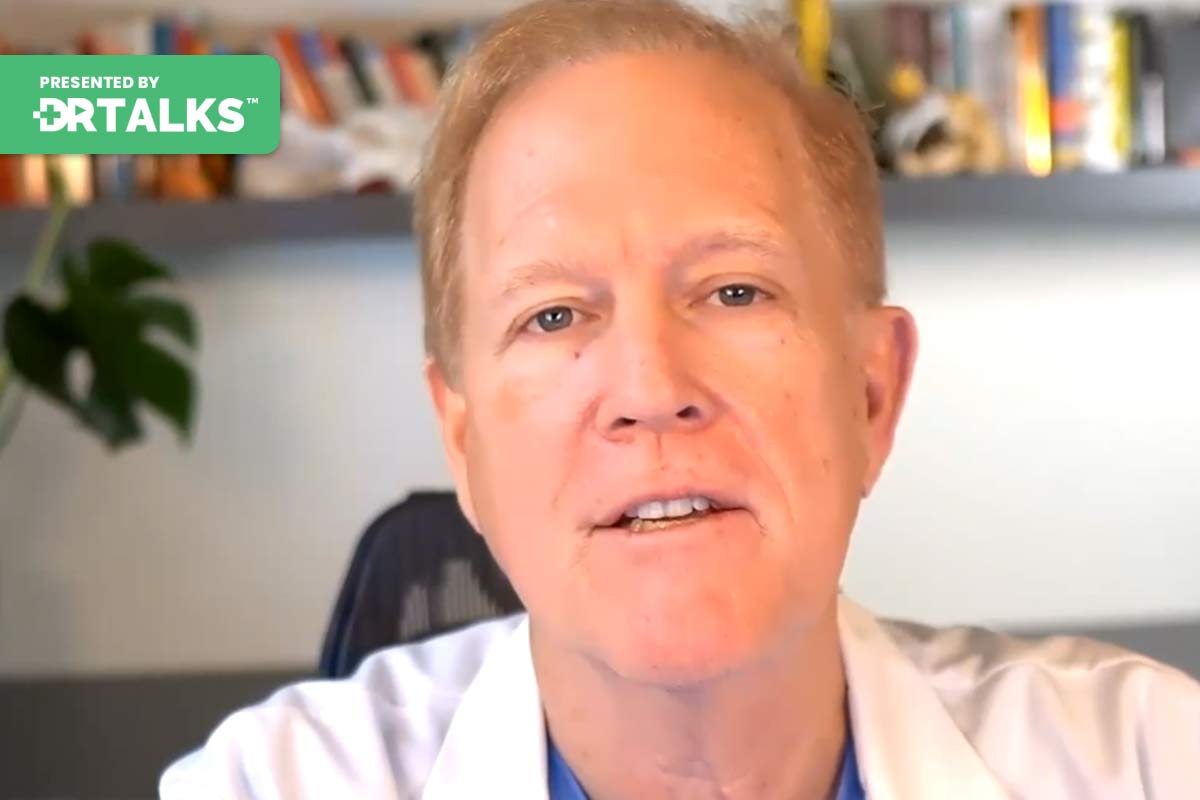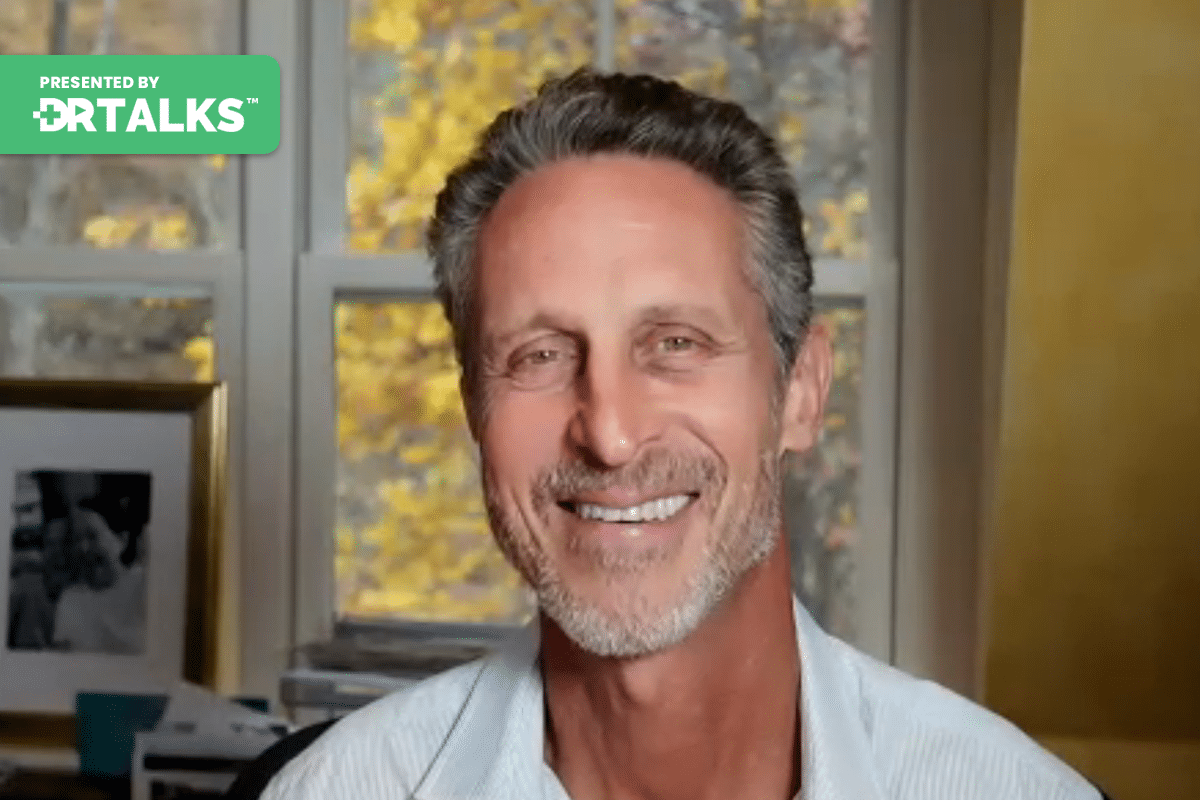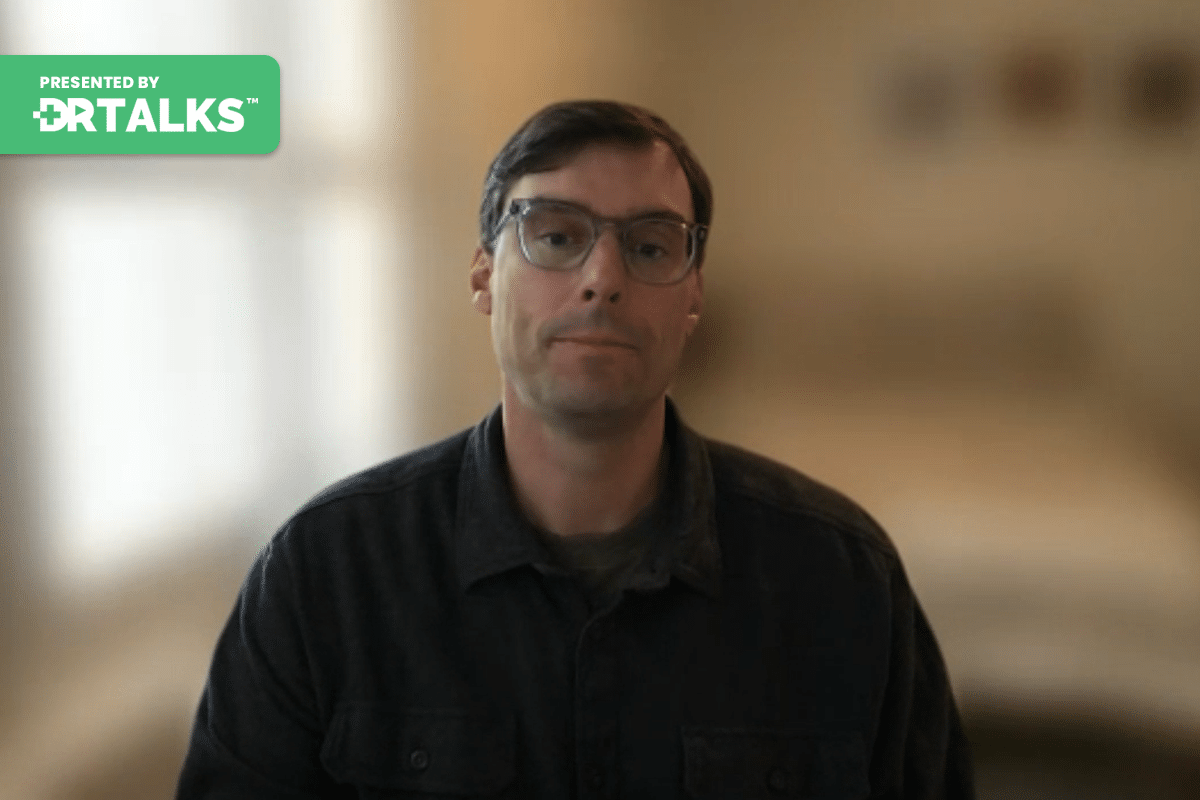Join the discussion below
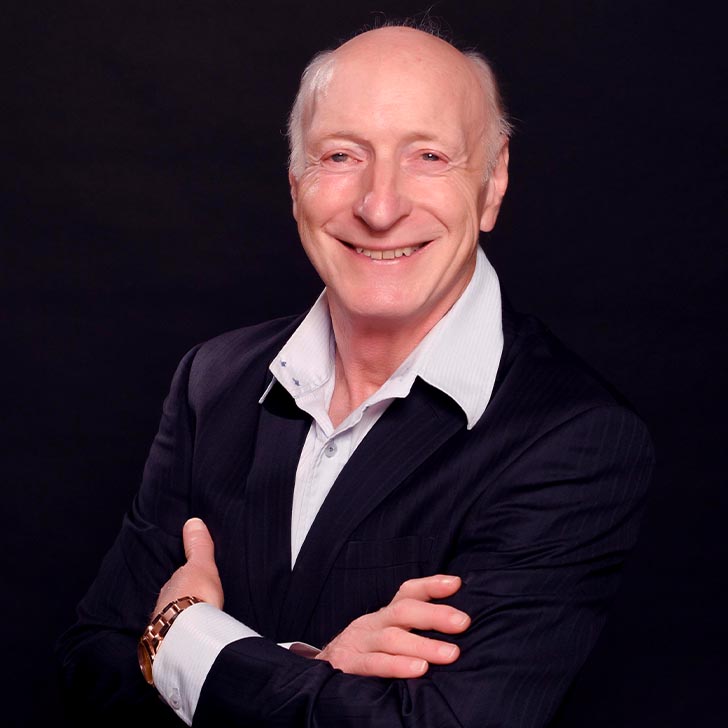
Dr. Stephen Sideroff is an internationally recognized psychologist, executive and medical consultant and expert in resilience, optimal performance, addiction, neurofeedback, leadership, and mental health. He has published pioneering research in these fields. He is a professor at UCLA in the Department of Psychiatry & Biobehavioral Sciences and the Department of... Read More
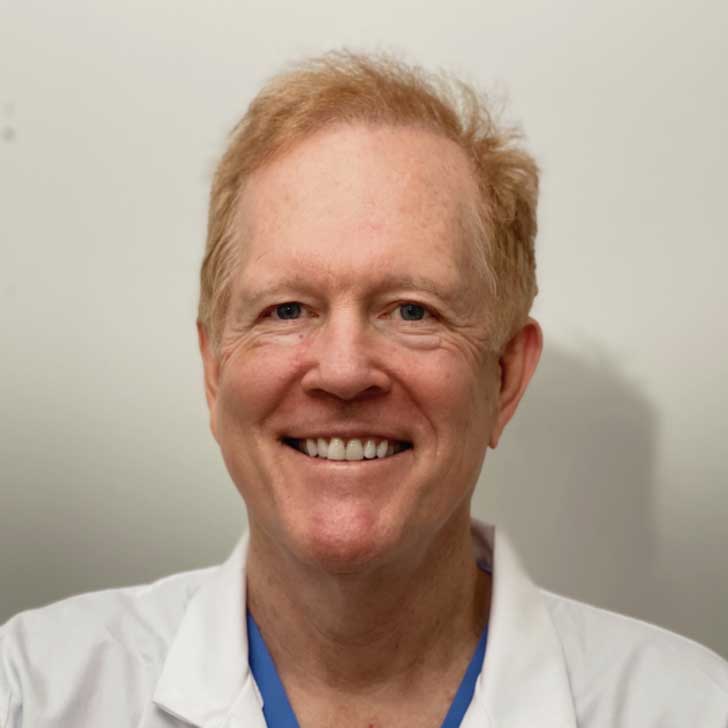
Robert is full Professor at a leading medical school and Chief of Neuroradiology at a large medical network in southern California. In addition to being a practicing physician, he is author of over 200 peer reviewed scientific papers, 32 book chapters and 13 books that are available in six languages. Read More
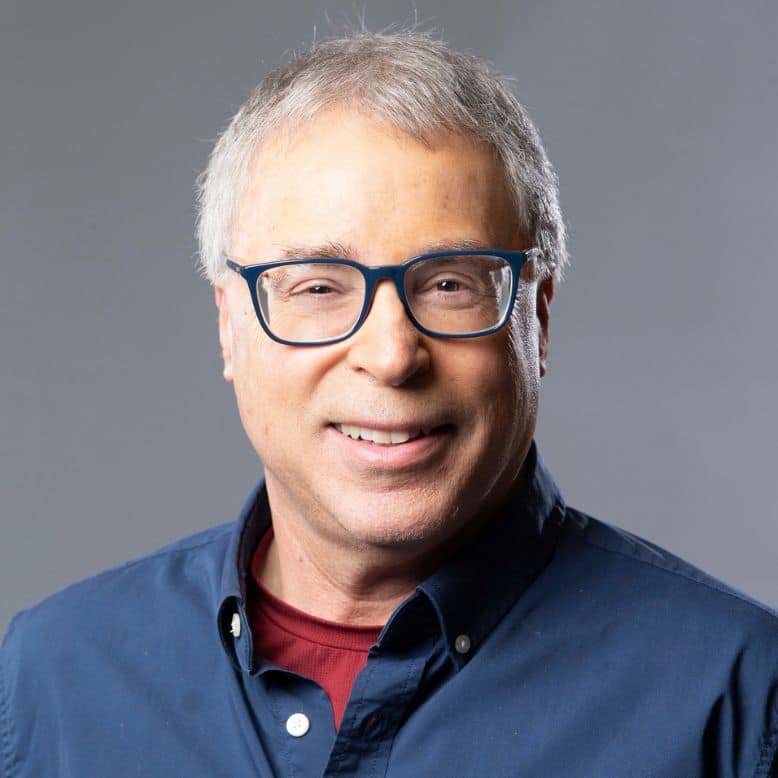
Dr. Barzilai is a Geroscientists, he is a chaired Professor of Medicine and Genetics and Director of the biggest Center to study the Biology of Aging and the principal investigator of the Einstein Nathan Shock Center and the Glenn Center for excellence in Biology of Aging. He was the recipient... Read More
- Inflammatory proteins are biomarkers for aging
- Gerothrapeutics can change inflammatory biomarkers
- Inflammaging is a hallmark of aging that should be targeted
Dr. Stephen Sideroff
Hello and welcome to another episode of the reversing inflammaging summit body and mind longevity medicine. Today we’re very pleased and honored to be joined by Dr. Nir Barzalai, a German scientist and a chair professor of medicine and genetics at Albert Einstein Nathan Shock Center and the Glen Center for Excellence and Biology of aging. And joining me today is Dr. Rob Lufkin, my co host, Rob.
Robert Lufkin, MD
Well, hey, hey, Steve. Hi everybody, it’s great to be here today. I can’t wait to talk to Nir Barzalai and hear about centenarians and the tame trial and all sorts of great stuff.
Dr. Stephen Sideroff
That’s great. So without further ado let’s bring on Dr. Barzalai, welcome near to our program. It’s a pleasure to have you with us. We’d like to start and welcome Rob, my co host.
Robert Lufkin, MD
Hey, it’s great to be here and here. It’s I’m really looking forward to this conversation.
Nir Barzilai, MD
Me too.
Dr. Stephen Sideroff
We would like to begin by having you just give us a little bit about what got you into this field of longevity and aging.
Nir Barzilai, MD
Terrific. And it actually happens early on and I’ll tell you why it happened to me early on and not to others because Steve, I don’t know if you have grandkids, but the grandkids look at their grandparents and they don’t see themselves becoming that they where did you come from? I mean what happened to you, right? And for me, when I walked I was 13 years old. I remember and I walked with my grandfather every Saturday and he would tell me his life story is a life of pioneer. And I would look at this old man heavy bold walking in such a low speed. And I said just what happened. And then, you know, I became a medic and I became a doctor and throughout everything, it was the biggest question. I mean, when I learned about cholesterol and when I learned about hypertension, I said, well, or diabetes, I don’t know who in this crowd has diabetes and and and and and you know, blood pressure and high cholesterol. But I know who’s old and who’s young. Isn’t that the most important thing to figure out? And maybe if we figure out we can do something about that?
Robert Lufkin, MD
Yeah, that’s great. What one thing I love to ask our our guests, uh, is that is kind of what’s your overall view? Kind of the big picture on longevity and aging And because surprisingly everybody has a little bit of a different take on it is it is it just wear and tear? Is it programmed? Is a quasi programmed? What’s your take on in the air.
Nir Barzilai, MD
So, so, so maybe let me qualify. I just talked a second ago about the fact that aging has a biology, right? Because we know who’s old and who’s young. But the second thing that we have to realize that this biology is what drives the age related diseases. Okay. It’s not that we got diseases and we got old. It’s the other way we got old and this aging drives the diseases for example, you can be born with a genetic change, genetic variance that’s called apoe E four. That means that when you’re 70 you’re likely to have Alzheimer and at 80 you’re likely to be dead. You don’t get Alzheimer when you’re born or when you’re one year or 10 year or 20 year, you need the aging biology in order to actually start the disease to get the disease. So this is really very important because if we want to do something about preventing diseases, we have to do a prevention of aging. And this is what the field is trying to do. I mean, we can treat aging when it happens. But we want to prevent it. Sorry.
Robert Lufkin, MD
Oh, that’s that’s that’s me. And I just had a follow up question to that. Go ahead, finish your thought.
Nir Barzilai, MD
You can you can I have a last point. But if you want to ask about.
Robert Lufkin, MD
Go ahead.
Nir Barzilai, MD
So the last point, that is the most important point is that aging can be targeted. Okay, we can delay aging. We can even stop it and reverse it in several situations. So we have to do it from a lot for many reasons. We have to do it. But we can do it. So we have to move now and start doing it in humans.
Robert Lufkin, MD
Yeah. An interesting point just to follow up on that the underscore, which you make that uh we have these these hallmarks of aging you mentioned. And then just the signs of aging? The gray hair, the baldness, the wrinkles, all those things that indicate that an organism is getting older. But It’s interesting that the longevity actually what determines our point of death is driven by these chronic diseases. Like nobody dies of wrinkles, nobody dies of gray hair. But it’s when they get one of these chronic diseases that the greatest risk factor is aging. As you say.
Nir Barzilai, MD
Right? And the greatest the greatest risk when you get the first disease, it’s the greatest risk for you getting the second disease and between ages 60 and 80 we’re getting Disease upon disease. A combination of bad diseases, sometimes treatments and sometimes interaction with treatments. So this is really a bad story looking during evolution, you know, 100,000 years of evolution. And I know there’s a lot of controversies of how many years was our evolution? But life expectancy was somewhere between 20 and 30 years. Although there were some old people all the time. But in the last 150 years we succeeded in getting lifespan. I mean it’s 76 now in the United States is dropping. Okay, most of the world is past 80 but we basically tripled our lifespan and we did it by prevention, you know, getting harnessed to agriculture, clean the water source immunization. There are other things. Surgery shouldn’t I shouldn’t ignore surgery, antibiotics. Right. But what did it get? What did it get us? It got us that now we have those age related disease. And my point is we can target them and prevent them and have aging look very very different.
Robert Lufkin, MD
That’s an interesting point you make just to follow one last follow up on that. Is that yeah, we increased our lifespan so dramatically over the last few 100 years. But we did it through as you say, public health measures infectious disease things. It’s interesting those didn’t really target longevity per se but rather public health and infectious disease. And also, even though we tripled our lifespan the way we did, it wasn’t by getting at any of the basic mechanisms of aging necessarily, like you say, there are plenty of old people back then. It’s just that on the average people don’t die in childbirth or you know, of infectious disease earlier on. There’s so much we don’t know.
Nir Barzilai, MD
Yeah, you’re absolutely right. But on the same token, some of the things that we can do have to do with things that we can do in our environment, such as exercise, right? That is crucial at any age, any sex to exercise is crucial diet, which I can talk about what I mean in other time, but you know, not being obese, for example right, sleep and keeping a good mood. Those are all things that are going to affect our health substantially. And this is be without talking about Gero therapeutics drugs right near.
Dr. Stephen Sideroff
I’ve read your comments in one place where you talk about the brain being where aging begins. Can you explain what you mean by that?
Nir Barzilai, MD
Yes. You know I don’t know where I wrote it and you’ll probably and probably during my career I said you know the levers where aging begins and the pancreas. But I actually returned in my career I turned I turned to brain and I did a lot of research targeting the hypothalamus. And I think the hypothalamus is a crucial organ that is related to lifespan. It controls metabolism and metabolism is one of the big hallmarks for aging. And one of the earliest things that happens in the hypothalamus is inflammation. There’s actually gliosis. And we are researching that I actually have a faculty Sandra Alexis who’s doing the M. R. I. S. On and on people in my study to identify this gliosis and to see the relationship but from animal models and from human we think that the hypothalamus could lead a lot of the aspects of aging in particular that are related to metabolism. But you know the hypothalamus is it’s important for hit regulation. It’s important for reproduction. So so and of course appetite control but but but I think in this sense. The hypothalamus is very central thalamus also communicate with the rest of the brain and with the rest of the body. It’s interesting that in my research, I could, you know, I could give an insulin to animals in order to show that the insulin clears their glucose.
Okay, I could give the insulin to the would do the same. I didn’t need the insulin in the periphery. So it’s a kind of a degenerate system. And we’re arguing which is more important. But certainly the brain has an oversight of all the aspects and there is in and out through there
Robert Lufkin, MD
So many things.
Dr. Stephen Sideroff
Just to add that in my own research, I’ve done a lot of work on studying the hippocampus and its role. So I agree that there’s a lot of places we can begin within the brain
Robert Lufkin, MD
And the hippocampus, that with the Alzheimer’s disease and with exercise and diet and even reversal on NMR scans, it’s amazing that these areas of brain, like the hypothalamus and hippocampus have have dramatic effects that we’re just beginning to understand here. Maybe a follow up question on the age related diseases. Near what how do you think the biology of aging drives these various age related diseases that ultimately determine our longevity, Like, you know, it’s a heart attack stroke? Alzheimer’s cancer? What’s how does aging turn those on, what’s going on?
Nir Barzilai, MD
The mechanisms of aging. What we call hallmarks are in every cell there. The up regulation is in almost every cell in the body and in in body that age sooner rather than later. This biology will be on all organs, but one organ will lead the aging in each individual. So if you had a diabetic mother and you’re obese, you’re going to get diabetes. This will be maybe the first disease. If you have genetics for diabetes, that’s what will happen. If you have genetics for cancer, that’s what will happen. So we individually carry the proponent to get the first disease that, you know, before we get the next one. But this is determined by by genetics by the environment. But the overall mechanism that can be targeted to prevent that is aging.
Dr. Stephen Sideroff
Can you say a little bit about the inflammation biomarkers and how they relate to aging?
Nir Barzilai, MD
Yes. So, you know, and I guess you wanted me before to say what happens, you know, what’s my definition of aging, which is really hard. It’s hard to do a consensus, a consensus about it. But I think most of us agree that what drives our life initially is reproduction. Okay, everything that helps reproduction is going to help us transfer whatever we had to get to reproduction to our offspring. Okay. And then evolution really didn’t plan our retirement party. Okay, so, So some of the things that happened before might help us and some of them might be antagonistic to us. But what happens at a certain point, let’s say 50, but it’s very individual. But at 50 we start going from this reproduction stage to a breakdown. And I think it’s breakdown that leads aging. And I think that probably inflammation is secondary to the breakdown. You know, there is a hypothesis of aging that’s called antagonistic play atrophy. Never mind the name. But what it means is things that are good to you for you when you’re young, turn against you where your old, you know, cholesterol is very important for us, for the sales, for the brain, for the gun nuts. But if we have high cholesterol metabolism when we’re old, we know that it’s not good.
Okay. So one of the things that really we discovered and and and we kind of proved recently. And one of my papers is this antagonistic choreography that has to do with growth hormone. And by the way, when I say growth hormone, there’s one growth hormone, but there are many growth hormones. So I’m not really meaning the one hormone that’s growth hormone. But when growth hormones are always good when you’re young, okay, you have less mortality. You have less diseases. When you’re old, it switches okay, the more growth hormone you have, the more mortality you have, the more diseases you have and intuitively you can understand that we at a certain age we don’t want to spend energy on growth, we want to spend energy on repair. Okay. And that’s why some of the drugs that are we’re using later on are things that are actually decreasing the growth hormones and pathways associated with it.
Robert Lufkin, MD
Yeah, that’s such a great point. And our audience is going to be hearing about antagonistic choreography and hyper function theory from Misha Black Shoni and plenty about M2 or two. So this is all gonna be be tying together with them near. I wanted to go back and invite you to uh talk about one thing you hinted at before and that is targeting aging with nutrition. Everybody is starting to recognize that eating the right diet is healthy for a lot of reasons, but also for longevity, the quest So nobody can agree on what the right diet is, what, what is the right diet in your mind.
Nir Barzilai, MD
So I’ll give you my own example and I should tell you diets are also personalized and people there are many 50 ways to leave your lovers, those of you remember this song. Okay. But but I’ll just give you example because this example that comes from my lab pretty much and when I started doing aging studies, we used, we used to put animals and no matter what, we were checking our positive control was this, we took half of the animals and let them eat whatever they want. We call it at libido. I’m feeding And their brothers, we used to figure out what the at Liberty Manimal have and give only 60% of that to their brothers And their brothers. Their caloric restricted one ended up living healthier, much healthier and longer by about 40%. And this was taken for many people. This translation was you have to have less for breakfast, less for lunch, one less for dinner. But this was wrong because what we were doing was actually giving the food to those caloric restricted animals first thing in the morning, now they were hungry So they would eat everything within 20 minutes and then they’ll spend 23 hours more fasting when we give the food throughout the day. They actually don’t live much longer. Okay. And that’s where intermittent fasting came from. Okay. And by the way, that’s what I’m doing since before covid. Okay.
So it’s 3.5 years that are intermittently fasting And it has been tremendous for me personally. Okay. On many ways. Initially I lost some of the extra pounds that I had, but in many other ways, it was terrific for me. And, and, and, and so basically what I do is I skipped breakfast, but only don’t, don’t cheat for 16 hours. And then at the eight hours that I can eat, I basically can eat whatever I want. So it’s not hard if I’m hungry in 15th hour, what I’m not going to stay an hour if you give me a diet for three months. I could break any day, but I’m not going to break for an hour and actually it’s not a problem anymore. I usually fast for much more than 16 hours because by then I have some kittens, I’m not so hungry anyhow. So this is an example, the 168 has variation. People are doing it several times a week or once a week. There are people who are fasting once a week. There are people who are fasting three days every four months. There’s a lot of variation of what you can do from your fasting. But I think there’s a lot of support to the fact that prolonged fasting has health benefits. Also. I think overall I’m eating less okay. I’m never picking up what I would have had anyhow. But I also don’t have the need for that. Like when you eat all day, you kind of get positive feedback to eat more and that doesn’t happen.
Dr. Stephen Sideroff
That’s great. I’m actually doing the 16 hours as well near and I’m finding that it makes me feel better also. So, we’re in alignment here. Can you talk about some of the maybe surprises you have found in your research with centenarians and super centenarians?
Nir Barzilai, MD
Yes. Well, first of all, the opposite of the surprise would be if I found out that they got sick when all of us got sick and now they are sick for a longer time, right, That would be the least attractive. And We actually found two things first of all their health span and lifespan go together. In other words they’re getting diseases 2030 years after others are getting their diseases. So health span and longevity goes together. But there’s an additional point. They have what we call a contraction of morbidity. They spend less time sick at the end of their lives. That happens to be a huge part of what we’re trying to do and frame it as the longevity dividend. And in our studies and also by the C. D. C. The C. D. C. Have shown since 1993 that the medical costs in the last two years of life of somebody who dies over after the age of 100 is third of those who dies when they’re 70. Okay so that’s a huge cost. But this is not the whole picture. In fact there is an economist by the name of Andrew Scott in London School of Economy that published in aging in nature, aging this year or last year. He said you know you’re totally underestimating because it’s not only that the guy is not in the hospital.
Okay but what is he doing? He’s traveling, he’s shopping, he’s buying for his grandkids. So the economical value of that is incredible. I mean since health care is like 40% of expenses the longevity dividend is he calculates I think something like $380 trillion dollars in the next 10 years. He said even 10% of that would do a lot for global warming. You know, if you have $36 trillion for global warming. So the point is, we cannot afford not to do that. And our centenarians have shown that there’s an example, we have it within our capacity, in fact maximum human lifespan and this is a statistical term. Okay, it’s 115 you know, we, we kind of argue about that because somebody lived to be 100 and 22 but statistically this is kind of our, our lifespan and we die, as I said at age 76 now in the United States, there’s there’s really a lot that we can potentially do for those 35-40 years that we don’t utilize now.
Dr. Stephen Sideroff
On that, same on that same note about those populations, from a psychological perspective, an emotional perspective, do you notice anything in particular about those centenarians? Super centenarians that may have to do with social contact, emotional health?
Nir Barzilai, MD
Yeah, it’s very difficult. Let me give you an example. But I’ll tell you first of all, it’s very difficult because they lived 100 years in different social circumstances every time. And it’s hard for them to even reconstructed. So how do you deal with somebody with social construction? But, and you know, they write, they retire, they lose a spouse, they go to a different home, they go to another different home. Okay, there’s also changes in the brain, not Alzheimer’s, but changes in the brain that are doing lots of things, changes in their body, that feedback to the brain. So to take 100 year old and ask him, what’s your social thing is a problem, you know, and, and many times people are saying, you have to see this Centenary because I’m not seeing all of them, you have to see these centenarians, you have to see the Centenary and sometimes I see them. So I go to this 104 year old person and I sit with him and he’s just lovely. He’s lovely. He’s reflectful he has nothing bad to say about his daughter in law or you know, anyone, anyone else. And it was just a joy. Just enjoyed sitting with this guy. So I’m going out of the meeting and I’m bumping into his son, mind you, his son is 82 right? And, and, and I’m telling his son what I just told you, you know, he’s like the greatest guy and the sun looks in my eyes and said, you should have seen the sun of a beach when he was my age. He was a terrible, terrible person. Okay. So, so then you realize we know about personality. We say personality doesn’t change If you look at the studies until 60, Okay. There are things that are changing their things, they’re not changing their people who are changing and people who are not changing, but go to 100 year old and ask him something. You’re not going to get reflection of his lifetime exposures.
Dr. Stephen Sideroff
As you started that story, I would have reflected back to you, Oh, a positive mindset.
Nir Barzilai, MD
So we published, look, we published that, we published three papers on that. We had an instrument and they were very positive personalities, extrovert, you know, and optimistic and all that. But but but people took it to say that that’s what led them there. And I’m saying not necessarily, you know, sometimes they become that person.
Robert Lufkin, MD
I wanna reach back and touch on one thing you said about the point on the epigenetic or on the maximum age for humans. It was a great paper I just saw from Steve Horvath and about 100 other collaborators about calculating maximum biologic maximum age based on epigenetic markers across different animals. And for humans it was about 120 other animals, it was appropriate to the age is that experienced. But one thing struck me in the article, there was one cell type, which was the cerebellum and when they look at humans, it was 400 years old. And that help any idea why that would be?
Nir Barzilai, MD
Right and and actually the female breast is 10 years older really than others. And now, you know, no, I think there’s still a lot of things. I think epigenetics is really important. And and and it’s a really good you can do really well in identifying the biological age of a person in a simple blood test. It’s good to kind of see predictions of diseases. But the thing I’m most interested is in biomarkers that will reflect successful therapy if we intervene with aging and we’re not there yet with them. And in fact, I think mutilation is it takes a while for it to change. I’m quoting Horvat, it’s nine months more than a year until you change mutilation. And I’d like to know in two months if I’m on the right track, right. And in this sense there are many other biomarkers. I’m actually very interested in proteomics and in the Protonix I have lots of inflammatory proteins, as much as lots of break down proteins. And I think no matter no matter what we do, no matter what drugs will use will need to stop the breakdown. And that’s why I think pro Tomic is going to be more important than mutilation at least to follow up if you’re doing something well.
Robert Lufkin, MD
Yeah, I’d like to follow up on that. Speaking of one area that you’re very well known for and that’s in and working in Metformin and also touch on the team trial. There’s just been an article about Metformin use in diabetics with reduction in biological age based on DNA epigenetic methylation markers, but metformin is such a, such a fascinating, such a fascinating longevity drug. It’s been around for a long time and used what before we talk about the time trial? Maybe you could just update us on what’s the latest thinking about the mechanism of metformin. I mean with rapamycin it’s clear it’s enter. But with Metformin it’s like candy canes or it’s the gut microbiome. You know, there’s so many different things. What’s the latest thinking on that?
Nir Barzilai, MD
For every Gero therapeutics? Including rapamycin, which we mentioned before that there are hallmarks of aging. Those two for example, Metformin rapamycin hit all the hallmarks of aging. If you can follow any one of the old marks of aging, it changes that now people are saying are you out of your mind? So all those drugs have nine different mechanism of action by accident. No, their mechanism of age of action is actually delaying aging. But if you take an old cell or an old organ or an old body and make it young, you’re going to fix lots of things. And that’s why we captured and you know, it was terrible for us because we used to fight about what’s the real mechanism because there’s so many things that we can monitor and I think we just have we as a general scientist, we have to know if you have a real good drug, it’s going to affect everything now. What does he do primarily, you know, I I think I think Metformin is primarily enter and Metformin it has more to do with its actions in the mitochondria in the complexes of the mitochondria as primary things. But what you see as far as mechanisms is that you’re attacking everything because you just improved aging.
Robert Lufkin, MD
Maybe you could just follow up on that and just tell everyone a little bit about the time trial and the current status of it. Any late breaking news.
Nir Barzilai, MD
Yeah. Look, the same trial is by the way it stands for targeting aging with Metformin but it’s not about Metformin because we already know that Metformin prevents mortality significantly. We already know that it prevents diabetes, it prevents cardiovascular disease, it prevents cognitive decline and its associated with less cancers and less Alzheimer’s. So we know all that Metformin is a tool for us to go to the FDA and prove to them and get indication for the fact that aging can be preventable. Okay, that’s why we’re doing tame. That’s why time is very important for the industry. Time is very important. So that pharmaceuticals that are on the sideline now, we’ll jump in and start thinking of how to do better drugs combination of drugs and really get us much more ahead of where we are in the quality of aging that we’re going to have.
Robert Lufkin, MD
Let me see if I understand that just one follow up. So the important fact is that right now aging is not considered a disease. So by having aging be defined by the FDA as a disease then the CMS and building organizations, companies would be able to develop drugs that specifically target that. So that would mean a lot of investment, venture capital in the aging spa rather than having to be in the Alzheimer space or the stroke space or the heart attack space is you will.
Nir Barzilai, MD
But I want to immediately attack one point. I think aging is the mother of diseases, right? He drives his diseases. But I don’t think aging should be called the disease for other reasons. You know, if everybody over 66 you know what happened in covid we isolated them, we made them lonely. They’re they’re doing poorly. From a social perspective, there’s no no need and it’s not going to interfere for us. What the FDA agrees that we have a cluster of disease and we’re going to delay this cluster of diseases and they’re okay if we can show that we don’t need to name names, Okay, We don’t need to go into the political argument. I think aging will be eventually recognized as a disease.
But now the people who want to help more the elderly, they don’t want to be called sick and there’s no reason for us to do that, but otherwise you’re right. But you know, that’s also what people don’t understand is how do you do a study like that? Because in a way you can come up with any disease to this study. But what disease you’re going to get? We’re agnostic. Okay, we don’t care which disease, whatever you’re going to get next is driven by aging. As I said, if you came in and your mother was diabetic and you’re obese you’ll get diabetes, you get one point for that. If you get cardiovascular disease you get one point and we’re going to show the trend the trend is significant. Okay, the trend is significant. That was aging for us. We’re going to prevent the whole cluster of diseases which for us represents the word aging and we’re agnostic to what it is which is going to delay that.
Dr. Stephen Sideroff
Nir this is a fascinating conversation. I appreciate it very much. I’m wondering if you can identify one or two uh exciting things happening in the field of longevity that we haven’t touched on yet.
Nir Barzilai, MD
Well, there are two things that were unexpected which is why science is so amazing. One thing is is really part of my research, my friend and collaborator HAC coin was the dean of USC school of gerontology. Have discovered what we call mitochondrial derived peptide. In other words, we are all talking about the genome that we have in our cells but we also have those energy factors mitochondria and their ancient bacteria and they have their own genome and the genome is very active and we have hundreds of peptides that are coming from those genome era interacting with us and and this is a whole new field that is a regulatory field that is really related to aging. Because when we give those peptides to a variety of animals, they live longer. And so this is something to watch out. There’s another genome we didn’t know. I mean the microbiome is also an example of another genome that we ignored, right. And the second thing that has more clinical relevance is something that I heard about several years ago and it shocked me hyperbaric oxygen therapy.
Now we know that oxidative stress is not a major regulator of aging. Okay. We knew it’s still debatable for different diseases, but we knew that that’s not a major thing. But I certainly didn’t think that having 100% oxygen under pressure is going to be good for biology. But their clinical studies that are quite convincing that shows that it’s a potent, potent treatment. And actually I purchased a hyperbaric oxygen chamber in my lab to understand more the biology. But there are two things that changed my mind and simply as I can say that first of all, Our blood vessels volume declined by about 40% with aging. Okay, we have less vessels, which means that there’s a lot of cells in our body that don’t see oxygen anymore. And if you give them several repeated treatment of 100% oxygen, oxygen will diffuse and wake up some of those cells and there will be functional benefits from that.
The second thing is actually when you’re hypoxic, when your oxygen level is low, you up regulate your biology with lots of things that seems to be good for aging. And what happens when you do those treatment with high oxygen pressure but then go to normal. The cells feel relatively hypoxic so they up regulate those mechanisms as well. So there’s at least two mechanisms that could be of benefit even if oxygen. I mean the whole idea of the mitochondria coming to the cell is to protect us from oxygen and harness energy but it’s much more complex. And so I would watch it there there it’s out there. It’s commercial. Okay people can get treatment lots of indication growing amounts of indication but watch the cognitive decline is really impressive results in my mind.
Dr. Stephen Sideroff
To follow up on that. What would you think is the frequency of use that could make a difference.
Nir Barzilai, MD
I don’t know that it’s determined. I think part of the issue is there you know in centers they were trying to do protocols and they stuck in the protocol that’s working but how many times for how long and repeating treatment you know is repeating treatment going to help or you have just one chance to do it. Those are all you know it’s too young to really tell you that. But it’s one of those things that’s out there that people will use and I hope they’ll use responsibly. And I hope that we’ll have more data because this is kind of a cool biology in my mind.
Robert Lufkin, MD
If you had to make a recommendation to people or a suggestion. But what are the one or two things that everybody in our audience could do that would most to do right today to help with their longevity and help.
Nir Barzilai, MD
Yeah. Well I’ll tell you what I’m doing first of all, I’m exercising every day okay. I’m very you know, even when I travel, I mean there are gyms everywhere and it’s even not always about exercising but moving The best. The best thing is to have a Fitbit or ring or something and if you reach 7000 preferably 10,000 you’ve done good for a day. Even if you’re just walking but you need to exercise overall. You know, basically second thing as I said is the diet and the simple, the most simple advice is not to be obese. But I’m doing the intermittent fasting and I think it’s easy for a lot of people, not for everyone and more for men than women okay. But if you could do it I think it’s of benefit. The third thing is sleep now sleep is more complicated because but what I’m doing is I’m spending eight hours in a dark room without technology I’m sleeping between six and seven hours out of that. Okay. But if I’m not that I’m sleeping even less so and this is without drugs. Right. So this is really crucial. The last thing I’m doing is I’m actually on mid forming and I got it for me because I was prediabetic. I’m not even close to it anymore. But I wouldn’t, I wouldn’t give it up. And by the way, the doctor, my doctor did it but he’s not but I begged him to stay on that. And I believe it as a major all those things together of major. Did I tell you I’m 100 years old by the way? I think there’s good effects on me.
Dr. Stephen Sideroff
Look very good for your age.
Robert Lufkin, MD
Well you mentioned diet near and you said you were in ketosis from the fasting portion. Certainly.
Nir Barzilai, MD
I didn’t say that. I’m actually not. It happens that I’m not, I’m you know, I’m not sure that I think ketosis doesn’t happen to everyone and I’m not sure how much it’s important. I think that probably the low insulin is the most important thing. I certainly don’t get to ketosis but it’s a little bit complicated by matt forming because it switches the and better hydroxybutyrate and so I might be falsely not in kittens, but I think it’s the intermittent fasting mechanisms yet to be discovered.
Robert Lufkin, MD
Sure. Yeah. Nobody really knows. There’s so many questions here. Well, you you mentioned metformin. But any of the other drugs, a car bus rapid Meyssan, uh the Saturn ib any of the other longevity drugs that you’re looking at or nutrients or supplements for that matter.
Nir Barzilai, MD
So I’ll tell you. Okay so first of all about drugs I’ll tell you that I’m experimenting other drugs carefully. I take relevant blood tests before and after. So I do that but I don’t care to tell you what I do because this is for me to be educated personally. Okay so I don’t care to talk about any of those things. The supplements have started scratching my head because my line about supplement was that it’s good for the economy you know by a lot it supports the economy because I also felt that many of the supplements. First of all many of the supplements are okay. Many of the supplements are even don’t have what they say they have because it’s not regulated. And what what I started being worried now is that there’s a lot of companies that are doing supplements and those supplements are actually quite potent And they might be helpful but then you have many supplements that are potent and there’s an interaction I heard a talk about by a longevity doctor who did biomarkers for aging and showed to people who were on 30 supplements and their biological age is increased by six years.
And I and I and I think so I think now it’s actually could be quite dangerous to take the supplements. And I think I think you just take whatever you need to take not whatever is out there on the web. I certainly you know there’s one example you know the candy bar mars the company which is mars something had a trial with 20,000 people on flavonoids, Cocoa. Okay. And the results were very impressive with you know 2030% decline in mortality and in cardiovascular events and stuff like that. And I think this is the kind of data that we need And and the FDA by the way they cannot say that that’s what it does although they did it as good as drug drug company would do it. But they cannot say it because the FDA doesn’t allow that. My view is the FDA should open the possibility for companies getting data and safety data and outcomes data so that we can understand better what’s going on. Otherwise it’s the Wild West.
Robert Lufkin, MD
Yeah. That’s so so important. Maybe you could tell people how can we reach you on social media and also following up your thoughts on medications for health longevity. You’re involved with a new a new project on that. That may provide some of that information that the FDA is not willing to get.
Nir Barzilai, MD
Yes. So we started the healthy longevity medicine society. If you put it on the web you’ll find it. And I think there’s information you know really the information is for doctors right? Not for it’s really to train doctors. It’s a medical society. So for the doctors of you are interested in longevity, definitely. My tweet is Nir Barzalai, M. D. And I’m also the scientific director of the American Federation of Aging Research. And a lot of information you can find the far side. I should also say another thing. I’m also one of the executives of the longevity biotech association that’s trying to standardize the biotech company and get also data for the investment if your investor and you say wow, it’s interesting. And by the way people, I was just an investor meeting in Switzerland with 100 and 50 investors, mainly multimillionaires and billionaires that are there because they feel the young people feel like it’s before the crypto happened and they should be early on. And the old one think it’s like the web. People know that longevity is coming and they want to be early on and what my role is basically if you want to be there and you say where should I be? I could met you with people who you want to talk with and get the information. But I think we should all be prepared to longer really not longer. I meant to say healthier. You know, by the way, not everybody can afford it. So the side effect might be longer life, you know, I don’t know if it’s always better for people but certainly health your life.
Dr. Stephen Sideroff
Right? Good point. Thank you near very much. We’ve really enjoyed our conversation with you and thank you for the leads to where people can get some additional information. Thank you very much.
Nir Barzilai, MD
Thank you very much. Was fun. Good luck.
Dr. Stephen Sideroff
Thank you.
Downloads

